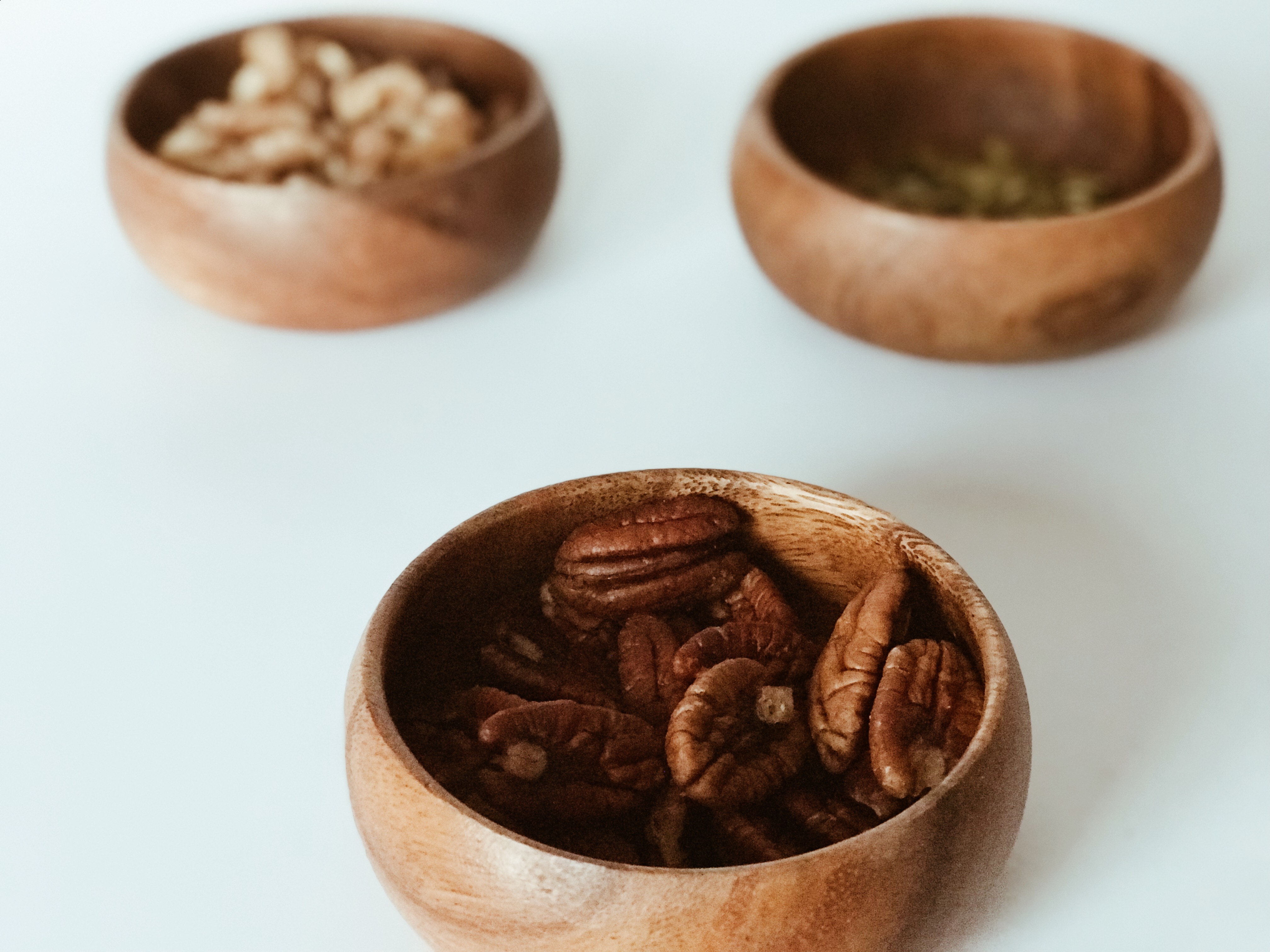
We all here the word fat and automatically assume these would make us fat. The truth is thats the furtherest from the truth out there. Fats get a bad name because they are 9 calories per gram therefore it contributes to more calories. Don’t let that be the reason you tend to stay away from them. Fats have several different roles in the body to help us not harm us.
Function of Fats:
- Provide a source of energy
- Act as building blocks for cell membranes and hormones
- They aid in the absorption of fat soluble vitamins A,D,E, and K
- They allow us to properly use proteins in our body
- Serve as a protective lining to our organs
- Help regulate energy absorption by slowing the absorption of food.
- Increase satiety
- Make food taste good
Essential Fatty Acids:
We have types of fats that are essential for our bodies but we cannot make them ourself therefore we need to be eating sources of these.
- Linoleic Acid- Omega 6
- Sources: Sesame oil, peanut oil, evening primrose oil
- Alpha Linolenic Acid- Omega 3
- Sources: Fish oil, flaxseed oil, wheat germ, walnuts, hemp, and pumpkin
These should be a 1:1 ratio. You want to have a good balance of these to help ward off inflammation in the body to ensure you have the right prostaglandin formation.
Then we have fats that are conditionally essential:
- GLA: Gamma linolenic acid
- AA: Arachidonic acid
- EPA: Eicosapentaenoic Acid
- DHA: Docosahexaenoic Acid
These are all formed by precursors Omega 6 and Omega 3.
Some more types and facts about Fatty Acids and Fat soluble vitamins:
- Cholesterol: The highest concentration of cholesterol occurs in the brain, where it plays an especially important role in memory formation. Seniors with the highest cholesterol levels have the best memory function. Cholesterol also plays a major role in regulating serotonin levels in the brain.
- Saturated Fats: The brain contains high levels of saturated fats, both in the cell membranes and in the mitochondria. Saturated fats are stable and don’t create damage in the brain like poly-unsaturated fats do.
-
Gamma linoleic acid: is an omega-6 fatty acid with a number of benefits, which include treating rheumatoid arthritis. They are a type of polyunsaturated fat important for brain function. Polyunsaturated fats, in general, help maintain the reproductive system and promote healthy skin and hair as well as regulate the metabolic system. It is found in plant seed oils, including evening primrose, black currant and borage, as well as in fungal oils and spirulina.
- Eicosapentaeonic Acid: which is an omega-3 fatty acid. Fish such as salmon, tuna, mackerel, sardines, shellfish and herring contain larger amounts of omega-3 fatty acids in comparison to other fish.
- Arachidonic Acid: Eleven percent of your brain is composed of arachidonic acid (AA), a type of omega-6 fatty acids found exclusively in animal fats like butter. A supply of AA is critical to neurological development in the infant.
- Docosahexaeonic Acid: is essential for the growth and functional development of the brain in infants. DHA is also essential maintenance of normal brain function in adults. DHA in the diet improves learning ability, whereas deficiencies of DHA are associated with deficits in learning.
- Vitamin A plays a key role in vision and all sensory perception. Butter is an excellent source of vitamin A.
- Vitamin D is critical to neurological function and protection against depression. Butter provides vitamin D.
- Vitamin K supports neurological function and learning. Great sources: pine nuts, cashews, olive oil, grass fed butter, and eggs.
- Vitamin E: Great sources: almonds, hazelnuts, peanuts, sunflower seeds.
- DHA is an omega-3 fatty acids especially concentrated in the brain. Seafood is a good source, but butter provides it also.
- Choline is critical for the formation of glial cells. Great sources are grass fed butter, liver, peanuts, and eggs.
Next time you make your next meal add nuts to your salad, make your meal a fish meal, add flax oil to your smoothie, or even top your favorite yogurt with nuts and seeds. You will see how much of a benefit these small changes will make.
Healthfully Yours,
Krystal Goodman
Sources:
https://www.ncbi.nlm.nih.gov/pmc/articles/PMC3262608/
https://www.westonaprice.org/know-your-fats/
